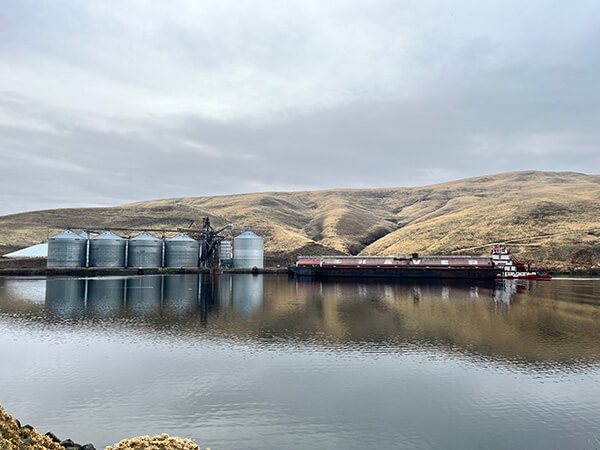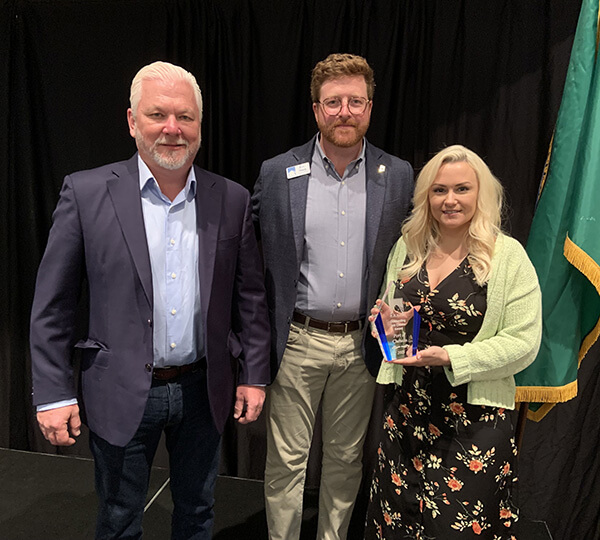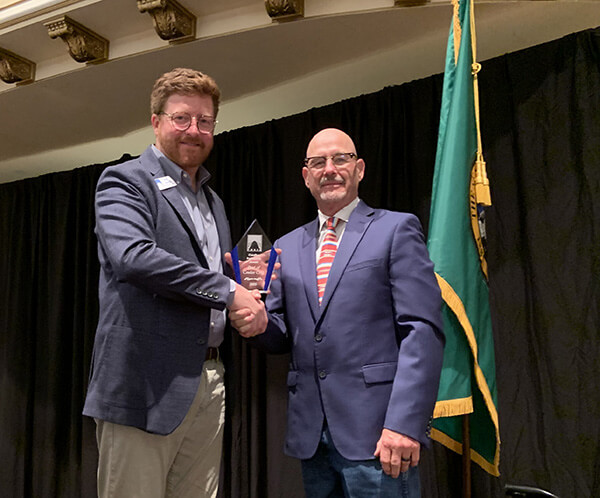By Frank J. Chmelik and Timothy D. Schermetzler of CSD Attorneys at Law P.S. – WPPA Counsel
This month, we focus on lawsuits and claims where there may be insurance coverage to defend the lawsuit or claim and/or pay any liable amounts. Next month, we will focus on claims and lawsuits where there is no insurance. Our goal here is to give ports a quick course on what happens when an incident occurs, a claim is filed, or a lawsuit is served.
Insurance Policies, Coverages Deductibles and Amounts of Coverage. Ports routinely and universally purchase commercial general liability (“CGL”) insurance policies and automobile liability (“Auto”) insurance policies. In addition, ports often purchase employment practices (“EP”) insurance policies and/or errors and omissions (“E&O”) insurance policies. CGL policies and Auto policies provide coverage for common liabilities like personal injury, property damage, and vehicle accidents. EP policies provide coverage for wrongful discharge and employee-asserted harassment claims. E&O covers some decisions from the port’s commission or the executive director that result in a claim against the port. Here are a few “best practices” regarding insurance coverage and notifications.
Periodically Review Policies. Review the port’s policies to make sure the port has the right coverage, in the right amounts and with the right deductible is imperative. Over the years, we have seen policies move from $500,000 to $1,000,000, and now we say $2,000,000 is the new $1,000,000. The port’s insurance broker can provide expert advice on appropriate insurance policy limits.
Provide Notice Early When a Port Becomes Aware of a Claim. Providing notice to an insurance company that there may be a claim against a policy is called “tendering” and is usually in the form of a letter to the insurance carrier. The port’s broker can help with this process. The general rule is to provide “tenders” early and to all potential carriers whenever the port becomes aware of a claim or even a potential claim (for example, when the port receives an administrative claim or becomes aware of a significant injury or death on its property). Insurance policies are complicated and there is no harm in “tendering” the claim but do so as soon as possible. In a significant injury, death, or property loss on a port’s property, the insurance carrier may send out an investigator even before any claim is filed. The insurance carrier can always say “no.” In a case where the port gets a “no,” consider working with the port’s insurance broker and/or hiring an insurance coverage lawyer to review the policy. We tell clients that a claim tendered to an insurance company may routinely be sent to the ”department of denial” for the first response.
Develop a Procedure to Document Incidents. Have a procedure and forms in place for port employees to document incidents such as injuries or property damage. It may be years before a claim arises and by then, the port may not have any information. If there is a problem with a port’s property (i.e., a slippery floor or a loose walkway board), fix it. The fact that a port fixed a condition is not admissible to prove there was a dangerous condition. If there is an incident which may lead to a claim, preserve all relevant information, including, but not limited to, pictures and e-mails. We represented a port district several years ago where there was a death. It did not appear that the port was liable, but the port gathered all the evidence (photos, e-mails, the contract at issue, and port staff statements) and tendered to its insurance carrier. We put all the information in a banker box and waited. There was never a claim.
Consult the Employment Practices Insurance Carrier Before Taking Adverse Personnel Actions. Many EP policies provide a waiver of the deductible if the insurance carrier is consulted before an adverse personnel action (demotion, suspension, or firing) is taken.
Always Consider Tendering to the Port’s E&O Insurance Carrier. If the port has E&O insurance, do not forget to consider a tender to this carrier. The timeframe to submit a claim on these policies is usually short and requires notice as soon as the port is aware of an incident, even before a claim is filed.
Make Sure the Port Is An “Additional Insured.” Make sure all the port’s tenants and contractors are required, in the leases or contracts, to have their own insurance policies that name the port as an “additional insured” and stipulate that their policy is “primary.” This means that, in many instances, the tenant or contractor’s insurance company is the company that will defend the port and pay any amounts due. Keep in mind (i) that the port must maintain a current certificate of insurance naming the port as an “additional insured” from each tenant and contractor (usually annually) on file; and (ii) if a claim arises it should be tendered to the tenant or contractor’s insurance carrier and to the port’s own insurance carrier.
Insurance Company Duties Owed to the Port. The insurance companies owe the port three distinct duties – the duty to investigate, the duty to defend and the duty to indemnify. The duty to investigate requires all the insurance companies that have received a “tender” to promptly investigate the claim, determine if there is available insurance coverage, and promptly inform the port of its coverage decision. The duty to defend requires the insurance company hire a lawyer to defend the port. The duty to indemnify requires the insurance company to pay up to the face amount of the policy (the “limits”) to settle the case or pay any court judgment.
Duty to Defend. The duty to defend is broader and independent of the duty to indemnify, and therefore a lawyer is hired even if coverage is in question. In cases where coverage is not clear, expect insurance carriers to issue a “reservation of rights letter,” telling the port that there may not be insurance coverage, but the carrier will provide a lawyer immediately pending a further coverage determination. The insurance company pays the lawyer directly and usually has the right to select the lawyer. There is never a duty in Washington to pay back an insurance company for fees paid for a lawyer hired by the insurance company to defend the port, even if the defense was provided with a reservation of rights even it is later determined that there is no coverage. There is usually no limit on the amount the insurance company has to pay a lawyer to defend the port and the amount paid for the lawyer usually doesn’t reduce the policy limits.
Duty to Indemnify. The duty to indemnify is simply the duty of an insurance company to pay up to the limits of a policy to settle a case or pay up to the limits of a policy for any judgment from a trial. In Washington, the insurance company owes the insured the duty of good faith and fair dealing. Since an insured is liable for any judgment amount over the limits on a policy (recall the discussion above about reviewing limits) the insurance company has to settle a lawsuit, if possible, within policy limits even if the insurance company feels it is paying too much.
Managing Insurance Company Covered Litigation. Insurance company-funded litigation involves the management of a defense attorney (typically selected and paid for by the insurance company). Ports should take care to keep their general counsel or risk manager involved because no matter who pays the bill, the lawyer represents the port and only the port. Moreover, the defense lawyer should not and will not become involved in disputes over coverage or settlement between the port and its insurance companies. The port representative is involved to make sure the interests of the port (and not the insurance company) are foremost in the insurance defense counsel, to help the insurance defense counsel understand the port and to help manage the needed staff involvement so as to minimize the impact on port day-to-day operations.
Duty of an Insurance Company. Ports must keep in mind that Washington law prohibits an insurance company from taking any action that puts the insurance company’s interest ahead of the insured, here the port. One “best practice” is for the port to direct that it receives a copy of the defense counsel’s periodic written status reports sent to the insurance company.
As always, please consult the port’s general counsel on these topics. And, if you have a particular topic for Knowing the Waters, please e-mail me at fchmelik@csdlaw.com and tschermetzler@csdlaw.com.





